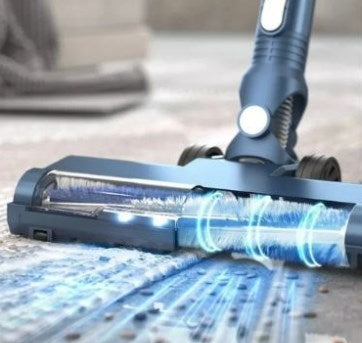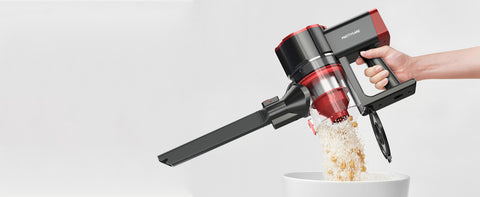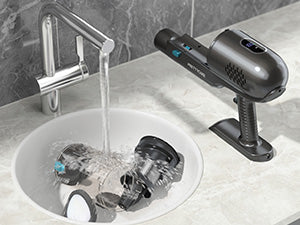Why is Vacuum Cleaner Maintenance Important?
Proper maintenance of your vacuum cleaner is essential to ensure its optimal performance and longevity. By following these maintenance tips and troubleshooting advice, you can keep your vacuum cleaner in top shape and enjoy cleaner and healthier surroundings.
1. Regularly Clean or Replace the Filters
Filters play a crucial role in trapping dust and allergens. Over time, they can become clogged, reducing the suction power of your vacuum cleaner. Check the manufacturer's instructions to determine how often you should clean or replace the filters. This will help maintain the efficiency of your vacuum cleaner.

2. Empty the Dust Bag or Canister
When the dust bag or canister is full, it can hinder the airflow and decrease the suction power. Empty it regularly to prevent this issue. Additionally, cleaning the dust container will prevent unpleasant odors and the spread of bacteria.

3. Check and Clean the Brush Roll
The brush roll, also known as the beater bar, can accumulate hair, threads, and debris over time. This can affect the brush roll's rotation and efficiency. Regularly remove any entangled debris and clean the brush roll to ensure it continues to pick up dirt effectively.

4. Inspect and Clear the Air Path
Obstructions in the air path can reduce the suction power of your vacuum cleaner. Check the hoses, nozzles, and other attachments for any blockages. Clear them using a long, flexible brush or by running water through them if they are washable.

5. Maintain the Vacuum Cleaner's Exterior
Wipe down the exterior of your vacuum cleaner with a damp cloth to remove any dirt or dust. Avoid using harsh chemicals that may damage the surface. Keeping the exterior clean not only improves its appearance but also prevents the accumulation of dirt that can affect the internal components.
Troubleshooting Tips:
1. Loss of Suction Power
If your vacuum cleaner is not picking up dirt as effectively as before, check for clogs in the air path, clean or replace the filters, and ensure the dust bag or canister is not full. These steps should help restore the suction power.
2. Strange Noises
Unusual noises coming from your vacuum cleaner can indicate a problem. Check for any loose or damaged parts, such as the brush roll or belt. Tighten or replace them as necessary. If the noise persists, consult the manufacturer or a professional technician.
3. Overheating
If your vacuum cleaner overheats, it may automatically shut off to prevent damage. This can occur if the filters are clogged or if the dust bag or canister is full. Allow the vacuum cleaner to cool down, clean or replace the filters, and empty the dust bag or canister before using it again.
4. Battery Issues
If your vacuum cleaner fails to turn on or the runtime is not as long as first, it's essential to maximize the battery runtime. Different situations and cleaning scenes may require different working modes. Adjust the settings accordingly to prolong the battery life and ensure efficient cleaning.
By following these maintenance tips and troubleshooting advice, you can ensure that your vacuum cleaner remains in excellent condition, providing you with efficient cleaning for years to come.

